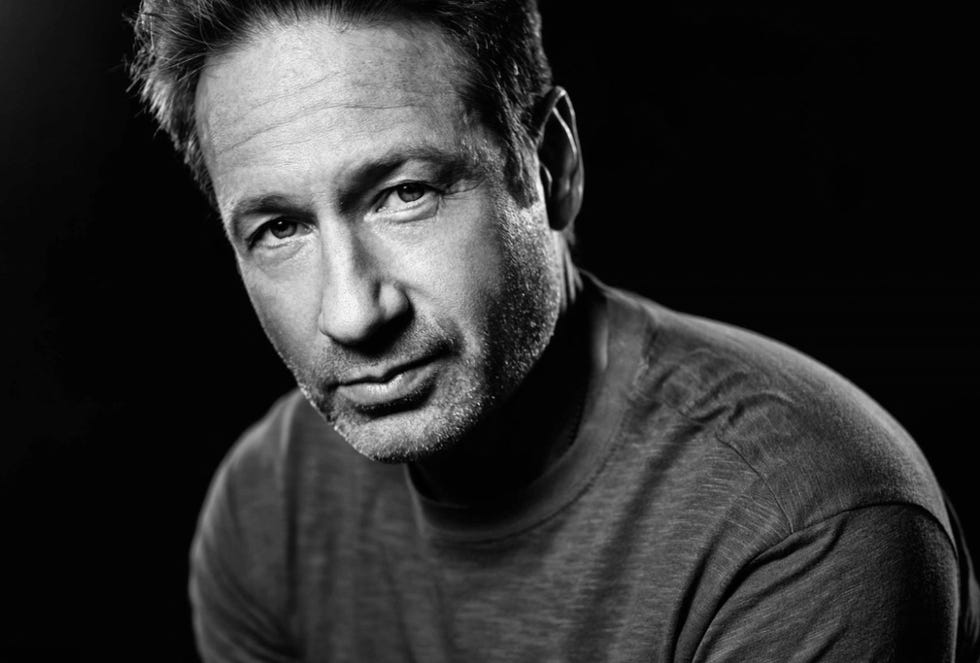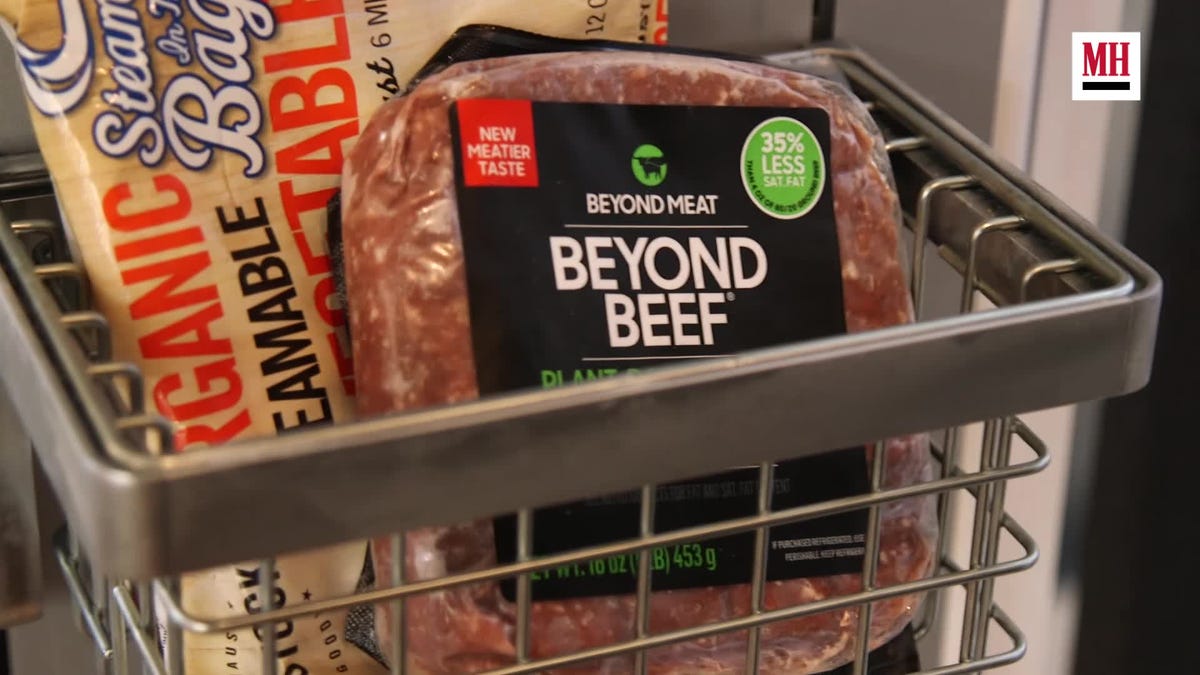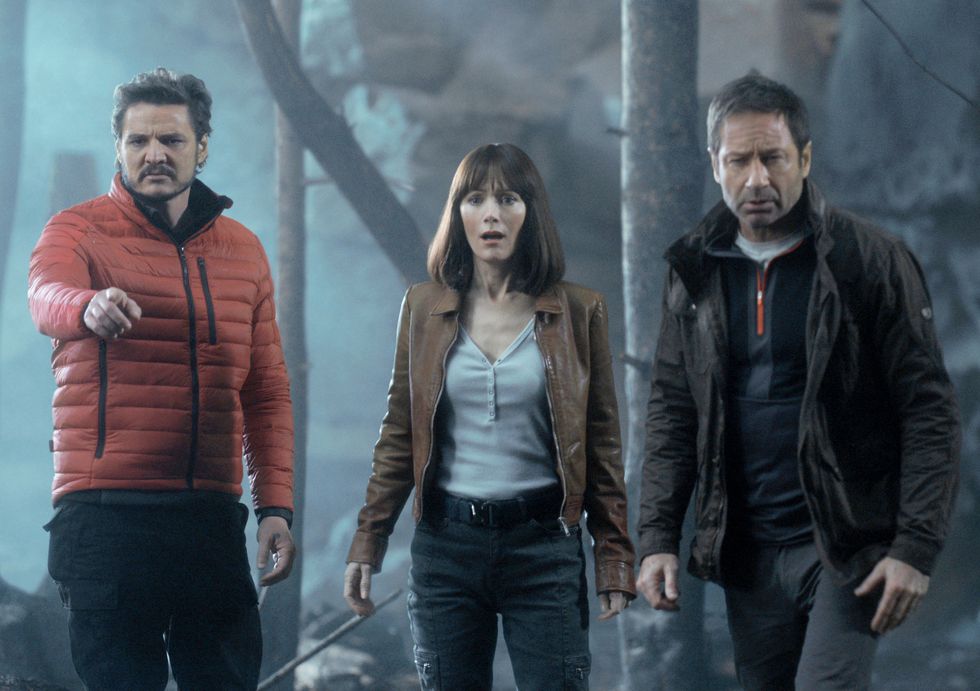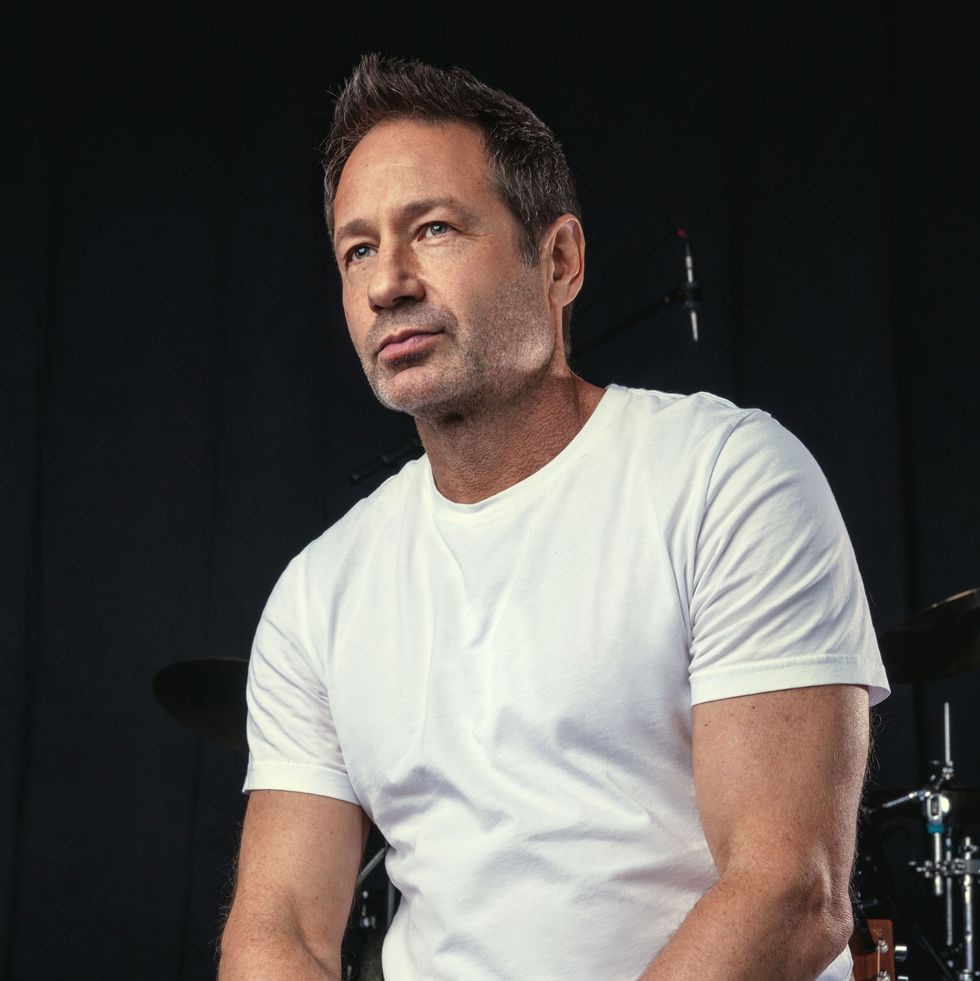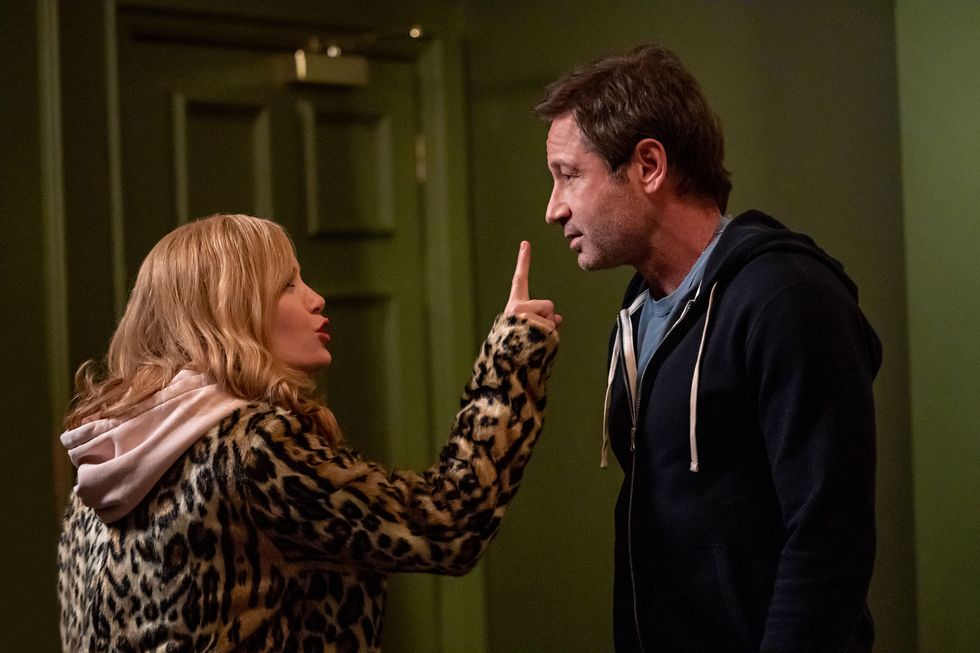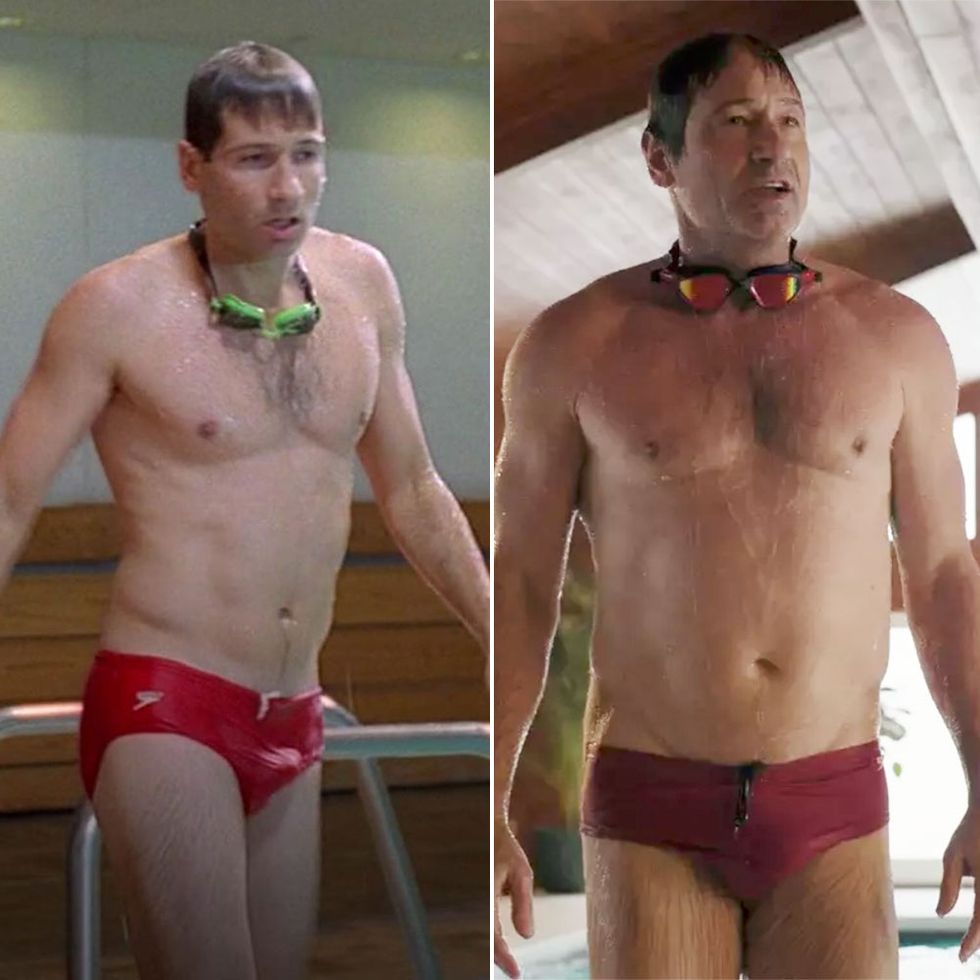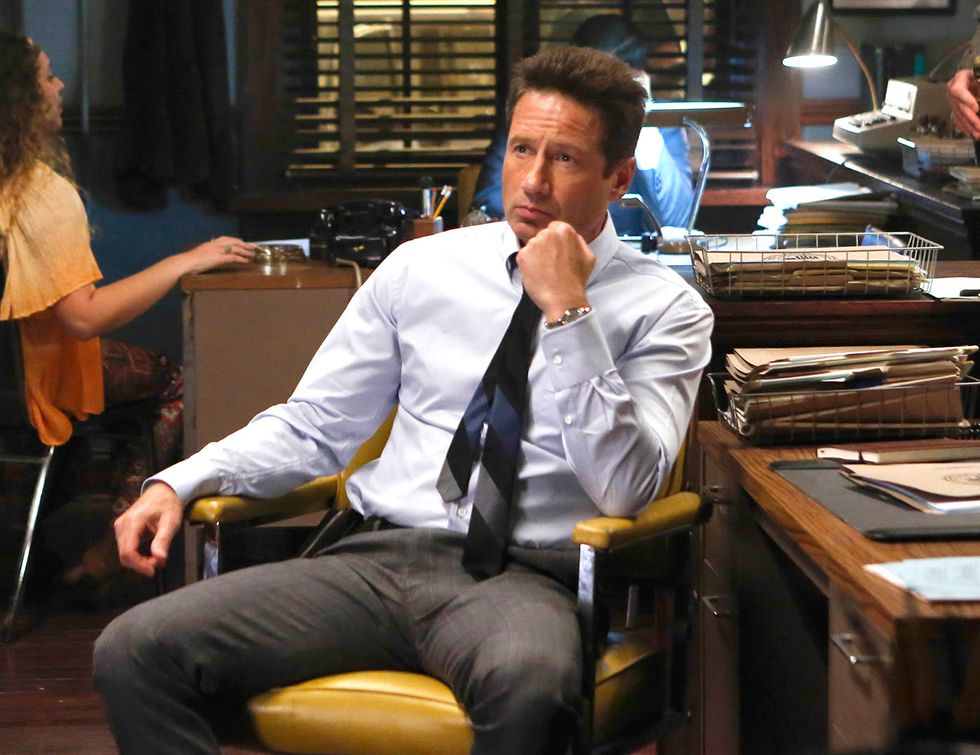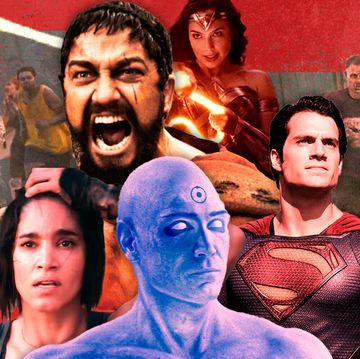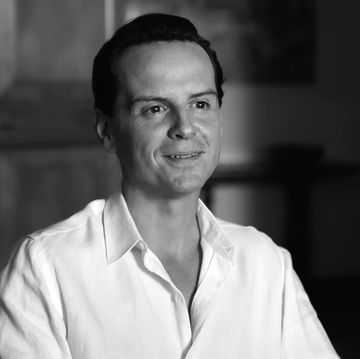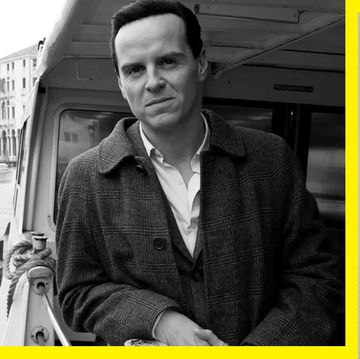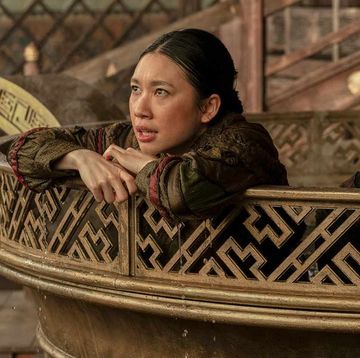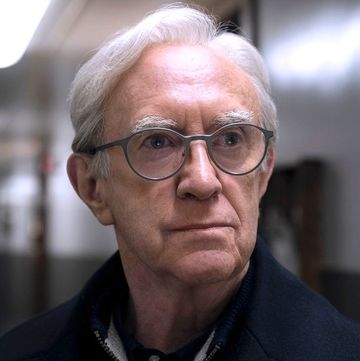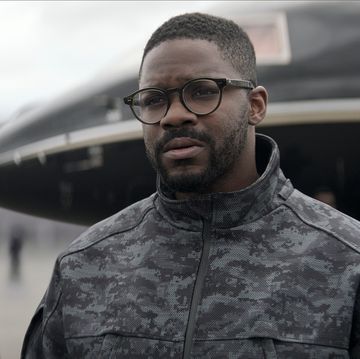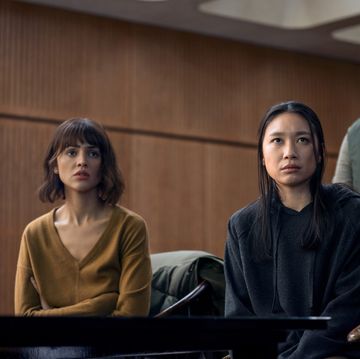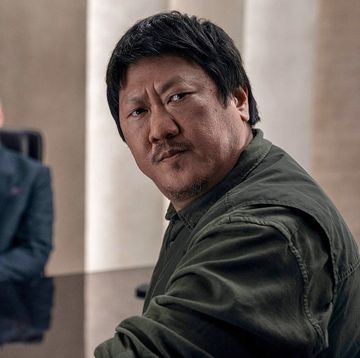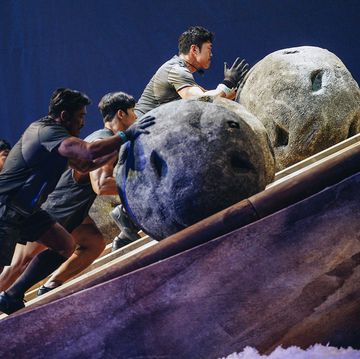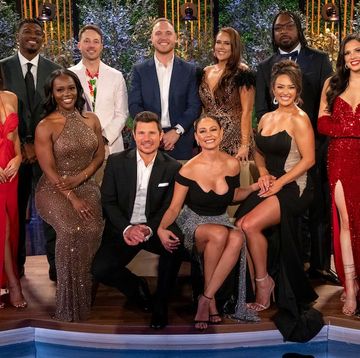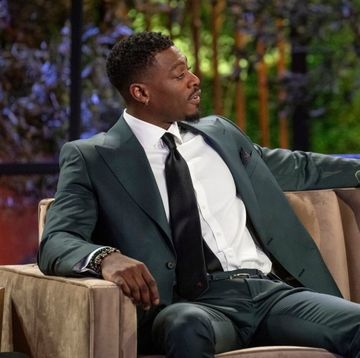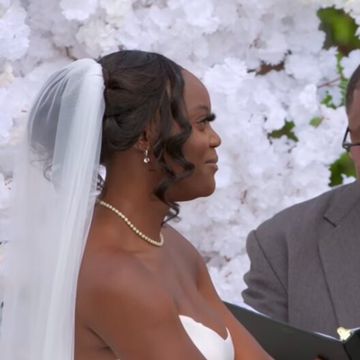Early on in his career, David Duchovny was one of those actors who looked down on television. He was a film actor, not a television actor. Thirty years later, and this concept is almost inconceivable, as even movie stars like Oscar Isaac, Josh Brolin, and Andrew Garfield are leading TV shows this month alone. The X-Files, which premiered on FOX in September 1993, wound up changing the trajectory of Duchovny's career, and–as one of the earliest network shows to make television a true cinematic experience–changing television.
On The X-Files, Duchovny played Fox Mulder, an FBI agent and conspiracy theorist who believed in aliens. To this day, he's stunned by the show’s success. “When we started The X-Files, it was a science fiction show on a shitty, fourth place network. FOX was not even on the map,” Duchovny says over Zoom. “When we were starting to do X-Files, you were starting to get shows that were, at least in terms of the acting, comparable to what you might see in a movie. You had NYPD Blue, maybe something like ER. These were movie type performances, but we had a double burden of being a science fiction show on Fox. What do you expect from the acting there? Not a lot.”
Duchovny’s post-X-Files career tends to explore common themes with his personal life, including fame, most notably as novelist Hank Moody on Showtime’s Californication, which ran from 2007 to 2014. Alternatively, Duchovny has explored and expanded his comedic skills in exaggerated and iconic versions as himself on HBO’s '90s comedy The Larry Sanders Show, and Netflix’s 2021 limited series The Chair. In Judd Apatow's new meta pandemic comedy and Hollywood satire The Bubble, now streaming on Netflix, Duchovny combines both of these elements in his role as Dustin Mulray, an actor and major franchise star coming to terms with his later career, while also attempting a mid-production rewrite of a major motion picture about cliff monsters into a statement about climate change.
Duchovny spoke to Men’s Health about The Bubble, his career, The X-Files, playing fictional versions of himself, and the evolution of the industry since he started working in the late 80s.
MH: What attracted you to The Bubble? Were you ever hesitant about working on a pandemic project during the pandemic?
DD: I did two jobs before this, so I had done work within the pandemic, the safe sets that we have now. Just from a nuts and bolts perspective, I thought, "That's interesting, because it's the new reality of actors, and this is an inside story too." Then it was just the fact that Judd Apatow was doing it, and I worked with him a long time ago when he was starting out on [The Larry Sanders Show], but I haven't really done a movie with him, and I've known him forever. I've always wanted to exist in his comedy world.
What was it like to go back to work after the lockdown, having not been on a set for so long and then having this weird new normal?
It's just amazing to me how quickly we, not as actors but as humans, adapt to a new normal. We all have two masks on, the actors have the clear shield because they don't want to ruin their makeup. It's a hassle, but you're just there to do your work. It's certainly not as laid back as it used to be—and that's not necessarily a bad thing. People leave you alone. Your agents and managers aren't coming to visit you on set.
Do people also leave you alone out in public, because they don’t notice you behind a mask?
The few times I would get recognized, I was always amazed. I would actually stop and talk to the person. I'd be like, "How did you do that?" And they'd be like, "It's your voice, or your eyes." I'm like, "Really? Come on. You're good. You're really good."
Your character in The Bubble is not a version of yourself, but he is an actor who has some things in common with you. Do you like playing yourself, or characters similar to yourself?
Honestly, I don't even think about that. I know they have my name, but it's like I'm playing some exteriorized version of myself. It's not even of yourself in a way, it's just what is serving the story of the comedy at this moment. I just think of them as distinct characters, and then if they have my name, they have my name.
They're as fictional as any other fictional character.
To me they are, and I understand that that's confusing to people, or that people want to think that's my indoor pool in Pittsburgh [in The Chair]. I don't combat it, because it's a losing battle.
It's like, "Are you that stupid and pretentious?" And I'm like, "I don't think so, but maybe. It's fine."
People think they know celebrities. So what's the point of not doing it if they have a warped perception of you anyway?
Totally. I'm like, "Yeah, bring it on. Make it as far from me as I think I am, and let's play around with that." Obviously the guy in The Bubble is not... there's no autobiographical connectors, but he's an actor, so I can bring that stuff. He's interested in climate change in his actor-y way, and I am interested in my actor-y way. So, there were things I could seize on as being part of me, but that's not necessary for me to work.
His obsession with making this big franchise movie a statement about climate change is not something I would do as an actor, but I totally understand the feeling of being trapped in this big entertainment machine and wanting to make a difference. I see him as ridiculous and a figure of ridicule, but I also like his heart. I like that he's trying.
Have you ever been in a situation where you wanted to change scripts because you didn’t agree with the direction the story was going?
Sure, I think so. For instance, I can only think back to when I've written for a show, like when I wrote for The X-Files a bit. I wrote and directed two episodes. In those two, I suppose I said the things that I wanted to say, especially with the second one, about being on that show. About being in the public eye with the intensity that we were back then. So as a writer, I've had that outlet—so I don't feel as trapped as Dustin, my character in The Bubble. He didn't have the outlet.
You're writing books, acting, making music. Does that help fulfill all your creative outlets?
Since I've started publishing as a writer and started to make music, my approach to acting has changed a little bit. Before, I would be like, "I want everything to be in this. Everything. I want to say everything, I want to do everything. I want it to be everything because that's all I've got to express myself."
I was probably a pain in the ass sometimes a little, like Dustin. I would think so. Having these other venues through which I can express myself made me a better actor to get along with, certainly.
In The Chair, you're in a Speedo for much of your appearance. Did you have to prepare fitness-wise for that or do you already have a thing down?
I just do my thing. For The Chair or even for The Bubble, it wasn't a plot point that I was going to be in great shape. In fact, it might have been funnier if I got to sit a little bit in The Chair, and I came out and my Speedo was totally covered by my gut. But I had two weeks, and they weren't paying me enough to gain that weight.
So I just always do my thing, but I certainly didn't work out harder or less hard up there. But obviously the Speedo was the mammoth callback to back in the day, when Mulder was in a Speedo. So I understood the necessity of that. It wasn't, "Jump in a bathing suit, turn around, let me see you." I just do what I do, and if it comes time to take my shirt off, then so be it.
What do you do?
I do a combination of a lot of things. I like Pilates a lot. I swim, I do a little yoga, I cross-train with weights—but not heavy weights. For cardio, I box, I play some tennis. I'm always trying to play a game rather than just trying to get fit. I'm always trying to be in a position where I could pick up a tennis racquet and play, rather than pick up a tennis racquet, play, and hurt myself for a month.
Something I realized when watching The Bubble and revisiting some of your work is that regardless of genre, you're a particularly good scene partner. You have really natural, easy chemistry with people you're in scenes with, and not just romantic chemistry like with Gillian [Anderson] on X-Files. Is that something that comes naturally or is that something you work with co-stars on?
Well, you hope you don't have to work on it, but if you do, you do. Thank you for asking that question, because I really feel like that's what acting is: acting isn't monologue acting. It can be, but acting is a connection to an audience through your connection to other people.
I've always felt a real desire to connect as an actor with the other performers. I don't know where that comes from. Maybe it's fear—I don't want to be out there alone. I think I'm a decent listener as an actor, and also just not faking anything. Whatever the chemistry that's there, just allowing that to play. Usually, I've been lucky in that I've been able to have great scene partners; male or female, it doesn't matter. Chemistry is chemistry. It's a certain kind of playfulness that you want to have as an actor.
You seem to also be quite comfortable in an improvisational environment, like in an Apatow movie. Do you think that your approach to acting is good for that work?
Improvisation and acting are not necessarily the same thing, really. To be able to do a scene with Leslie Mann, who's worked with Judd so much and is very comfortable in that world... I'd never worked like that. My first job I ever had was a film called New Year's Day with Henry Jaglom, and that was all improvised. So I started there. Then to work with Judd like this, you're hearing lines yelled at you while you're trying to stay in the scene. It's a very weird, fun way to work.
I like it—I just haven't done it a lot. For instance, on Californication and on X-Files, I wouldn't say I improvised much at all. I'd improvise a line here, a line there, change some words, but not to the extent of this. It's a different mindset. It really is. The people that can do it well, it's remarkable to be able to work with them. There were a lot of them in this film. I mentioned Leslie, but Keegan [Michael-Key], Fred Armisen. They've spent a long time in that improvisational world. I'm always trying to bring the reality to it, stay grounded in some human quality, and then improvise on top of that.
It's funny, I was able to direct Robin Williams a long time ago, and obviously he's a master improvisational performer. I had to reign him in a little bit, because he was playing a character that was limited in that capacity. I think he had fun, but it's also fun to take that energy and that focus, which is like, “What is my next line? What am I going to make up?” and just turn it into a different energy.
I'm interested to hear your perspective on how much the industry has changed since you started acting, and what the benefits have been for you from the peak of the network TV era to the streaming era we’re in now?
I remember when I got off X-Files, I was like, "I'm never going to do television again because it's just too exhausting." Then cable came around. I was like, "I can do 12 episodes a year and really commit to this show at 12 episodes. I can do that. I want to do that."
Then towards the end of that, I started doing Aquarius [a period crime drama that ran on NBC for two seasons, 2015-2016]. I went back to network to try to do a cable type show. That was an interesting pivot point, because networks were saying, "Hey, we're going to compete with cable," and that didn't happen. There was a moment where networks were saying, "We're going to be as good as cable," and then they contracted and went, "We're just going to do what we do. We're going to do our network shows, we're going to do our sitcoms, we're going to do our Law and Orders." Aquarius was a casualty of that, because basically we should have been on Netflix, but we went on NBC. I remember when they were pitching Aquarius to Netflix, I was like, "Netflix? I don't know." It felt cheap, it felt like rinky-dink.
I'm always wrong about these moves in the business, so I was wrong again. I've worked with Netflix like three or four times in the past year. There's a huge expansion in the amount of things that are being done, which is great. It gives different people shots. The converse of that is that maybe the quality gets watered down a little. I don't know. That's really not for me to say.
It's also very hard to—not that this should be the impulse of any artist—but it's hard to have a lasting impact. When you think back to something like Tiger King? Inescapable. Now it's two years later, and do we care about a fictionalized [adaptation]? Or Squid Game. Crazy, crazy. Everybody's Squid Game. Now it's six months later and it's like...
Yeah. No one’s really discussing it anymore. The X-Files was probably the first show that was discussed online in the way that all shows are now. What was your experience back then, being the face of this show that people had all these opinions about? More opinions than I think anyone ever had about any show?
Well, again, you have to remember that I'm always going to be wrong about mega trends. I remember facing this idea that there were chat rooms, these foreign ideas that I didn't quite get. I remember trying to go on a chat room and saying, "Hey, this is me." And everyone was like, "Fuck you. It's not you." I was like, "Okay, that sounds about right."
So, I just started to think about church. It felt like church to me. It felt like a place that people go to to form a community. It's not a God that they're believing in, but it's a show that they've watched, and they have something to talk about, and they have opinions on it. I started to get a little wary, because the writers would monitor these things. I saw this happen with Game Of Thrones too, where the fans were trying to drive stories, trying to drive the show. I was on the side of, "No, no, no that's our job. This is what we've got to do. We got here because we did it, not because we listened to anybody else."
It's fine to read it and listen, but I think it's dangerous when you start trying to make people happy. I think you make people happy by surprising them, not by doing what they want you to do.
This interview has been condensed for content and clarity.
